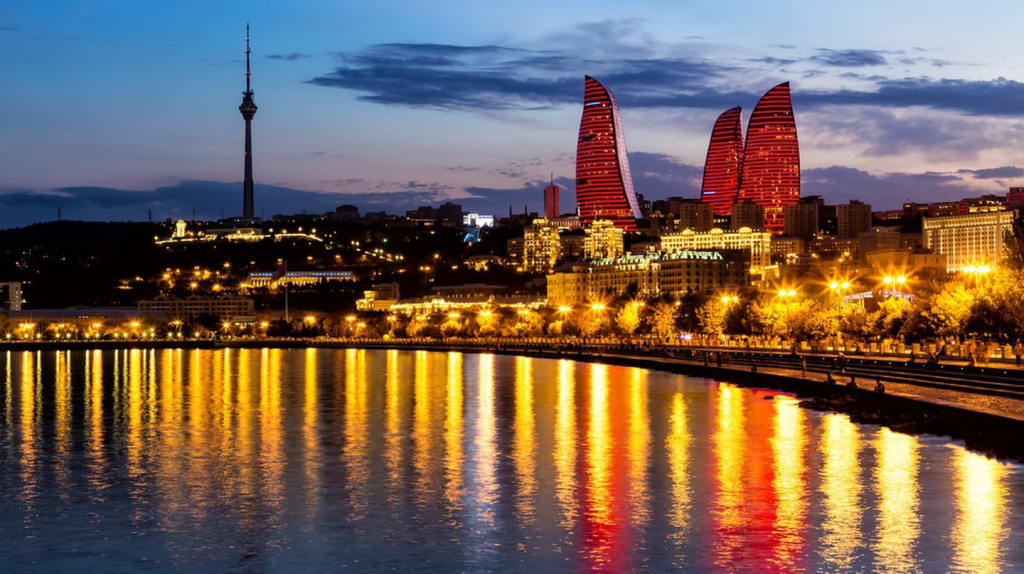Azerbaijan: A Tapestry of Ancient Civilizations and Modern Resilience
Azerbaijan: Bridging the Past and the Future

Nestled at the crossroads of Europe and Asia, Azerbaijan is a land steeped in history, culture, and natural beauty. From its ancient roots as a center of civilization to its modern identity as an independent nation, the story of Azerbaijan is a fascinating journey through time.
Ancient Civilization and Early Settlements:
The history of Azerbaijan dates back thousands of years, with evidence of human habitation in the region dating to the Paleolithic era. The fertile lands of the Azerbaijani plateau were home to several ancient civilizations, including the mysterious people known as the Caucasian Albanians.
One of the most significant ancient sites in Azerbaijan is Gobustan, a UNESCO World Heritage Site renowned for its rock carvings, cave paintings, and ancient petroglyphs dating back over 40,000 years. These ancient artworks provide insights into the daily life, rituals, and beliefs of the region's early inhabitants.
Persian Empires and Islamic Influence:
Throughout antiquity, Azerbaijan was a strategically important region coveted by various empires, including the Persian, Roman, Byzantine, and Arab Empires. In the 7th century CE, Islam spread to Azerbaijan, bringing with it a new era of cultural and religious influence.
The arrival of Islam led to the establishment of powerful Islamic dynasties, including the Shirvanshahs, who ruled over Azerbaijan for centuries. Under their patronage, Azerbaijan flourished as a center of Islamic art, architecture, and scholarship, with magnificent monuments such as the Shirvanshah Palace and Maiden Tower still standing as testaments to this golden age.
Persian Safavids and Russian Influence:
In the 16th century, Azerbaijan came under the control of the Persian Safavid Empire, which sought to promote Shia Islam and Persian culture in the region. However, by the 18th century, Azerbaijan had become a battleground for competing empires, including the Ottoman and Russian Empires.
In the early 19th century, Azerbaijan was ceded to the Russian Empire following the Russo-Persian Wars, marking the beginning of Russian rule in the region. Despite initial resistance from the local population, Azerbaijan experienced significant modernization and development under Russian imperial rule, particularly in areas such as education, infrastructure, and industry.
Soviet Era and Independence:
In the aftermath of the Russian Revolution of 1917, Azerbaijan declared its independence from the Russian Empire and established the Azerbaijan Democratic Republic on May 28, 1918. However, Azerbaijan's independence was short-lived, as the country soon fell under Soviet rule following the Red Army's invasion in 1920.
Under Soviet rule, Azerbaijan experienced rapid industrialization, urbanization, and social change, but also political repression and cultural assimilation. The collapse of the Soviet Union in 1991 paved the way for Azerbaijan's reemergence as an independent nation, with the country declaring its independence once again on October 18, 1991.
Modern Azerbaijan:
Since gaining independence, Azerbaijan has undergone significant economic, political, and social transformation. The country has emerged as a regional leader in energy production, particularly in the field of oil and natural gas, with the development of major energy projects such as the Baku-Tbilisi-Ceyhan pipeline.
Azerbaijan has also made strides in promoting cultural heritage, tourism, and international cooperation, hosting major events such as the Eurovision Song Contest and the European Games. The capital city of Baku has been transformed into a modern metropolis, with striking architectural landmarks and a vibrant cultural scene.
Looking to the future, Azerbaijan faces both challenges and opportunities as it seeks to build a prosperous and democratic society. With its rich history, diverse culture, and strategic location, Azerbaijan is poised to play an increasingly important role on the global stage, contributing to peace, stability, and prosperity in the region and beyond.
In conclusion, the history of Azerbaijan is a testament to the resilience, creativity, and diversity of its people. From its ancient civilizations to its modern achievements, Azerbaijan's journey reflects the enduring spirit of a nation determined to shape its own destiny in the world.
About the Creator
Enjoyed the story? Support the Creator.
Subscribe for free to receive all their stories in your feed. You could also pledge your support or give them a one-off tip, letting them know you appreciate their work.





Comments (1)
Vendula Remarová is not accepting comments at the moment
Want to show your support? Send them a one-off tip.